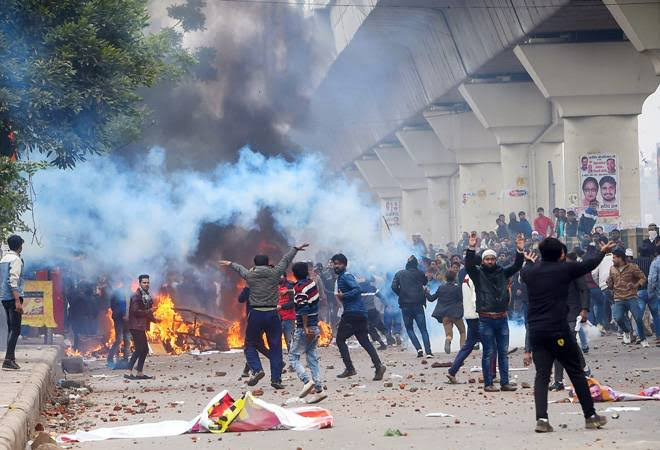Santosh Kumar Mohapatra
Targeting those who resorted to violence and damaged public property during protests against new citizenship law, Prime Minister Narendra Modi said they should “ask themselves if their path was right”.
He said emphasis should not just be on citizen rights but also duties and responsibilities. He is correct. Our society really needs to focus more on responsibilities than on rights.
But violence is triggered not just by non-BJP leaders and followers but by BJP leaders and their followers, too.
The Prime Minister must recall the Godhra train carnage when he was Chief Minister of Gujarat and then Prime Minister Vajpayee had urged him to perform ‘rajdharma’.
The Prime Minister should not be oblivious of the fact that the government, too, has responsibilities towards its citizens, rajdharma, especially towards the impoverished, suffering masses.
Death by hunger is India’s tragic reality and greatest crime, too. It is shameful that about 19.44 crore people (one-third of the world’s malnourished) in the country are forced to sleep on an empty stomach.
Over 10 crore people in the country are getting water contaminated with excess fluoride, according to information given in the Lok Sabha in December 2017.
According to NITI Aayog, 40 per cent of Indians will have no access to drinking water by 2030. Air pollution in India is a serious health issue. Twenty-two out of 30 most polluted cities in the world were from India in 2018.
Modi said good education is our right, but keeping institutions of education safe and respecting teachers is our responsibility. Healthcare is our right but cooperating with doctors and respecting them is our responsibility. But question is that what types of rights, people enjoy as far as education and health are concerned.
Growing privatisation of health and education has eroded the purchasing power of people and decimated standards of living. According to Nobel laureate Amartya Sen, India is limping backwards due to decline in expenditure in health and education.
In 2013-14, the last year of UPA, education got 4.57 per cent of the total expenditure. But there has been a steady decline during NDA government. It has declined to 4.1 per cent in 2014-15 and further to 3.7 per cent 2018-19.
In the same period, the central budgetary allocation for education as compared to country’s GDP has decreased from 0.63 per cent to 0.45 per cent.
As a whole, India spends about 3 per cent of the GDP on education as against 6 per cent envisaged by Kothari commission. In the tug of war between Centre and states, the 60 per cent children who are greatly dependent on public provisioning of school education suffer and are denied their fundamental rights and entitlements.
According to ‘Lancet Psychiatry’ state-level disease burden survey, India had an incidence of mental disorders of varying severity as high as one in seven in 2017.
The state should ensure that one does not face discrimination on the bases of caste, gender, religion or economic status. But one recent glaring example of discrimination by the state is the huge cut in corporate tax, while no concession was granted to the poor even in the form of GST reduction. Women are treated most unequally in India, compared with men. The gap in wages, known as the gender wage gap, is the highest in India among 73 countries. On average, women are paid 34 per cent less than men. And an average of 92 women are raped a day according to 2017 data.
Government is abdicating its responsibilities when it is required to solve problems of the masses. One per cent of the population holds 51.53 per cent of wealth of nations in 2018, up from 48.7 per cent in 2013.
Many of these problems are global in nature. But in India, things have turned worse under the current political dispensation. It is reflected by both macro and international indicators. What is reprehensible that the government is enacting controversial Acts while ignoring issues that affect the lives and livelihood of masses. The PM Modi should introspect whether his government is on the right path.
The author is an Odisha-based economist. e-Mail: skmohapatra67@gmail.com.
